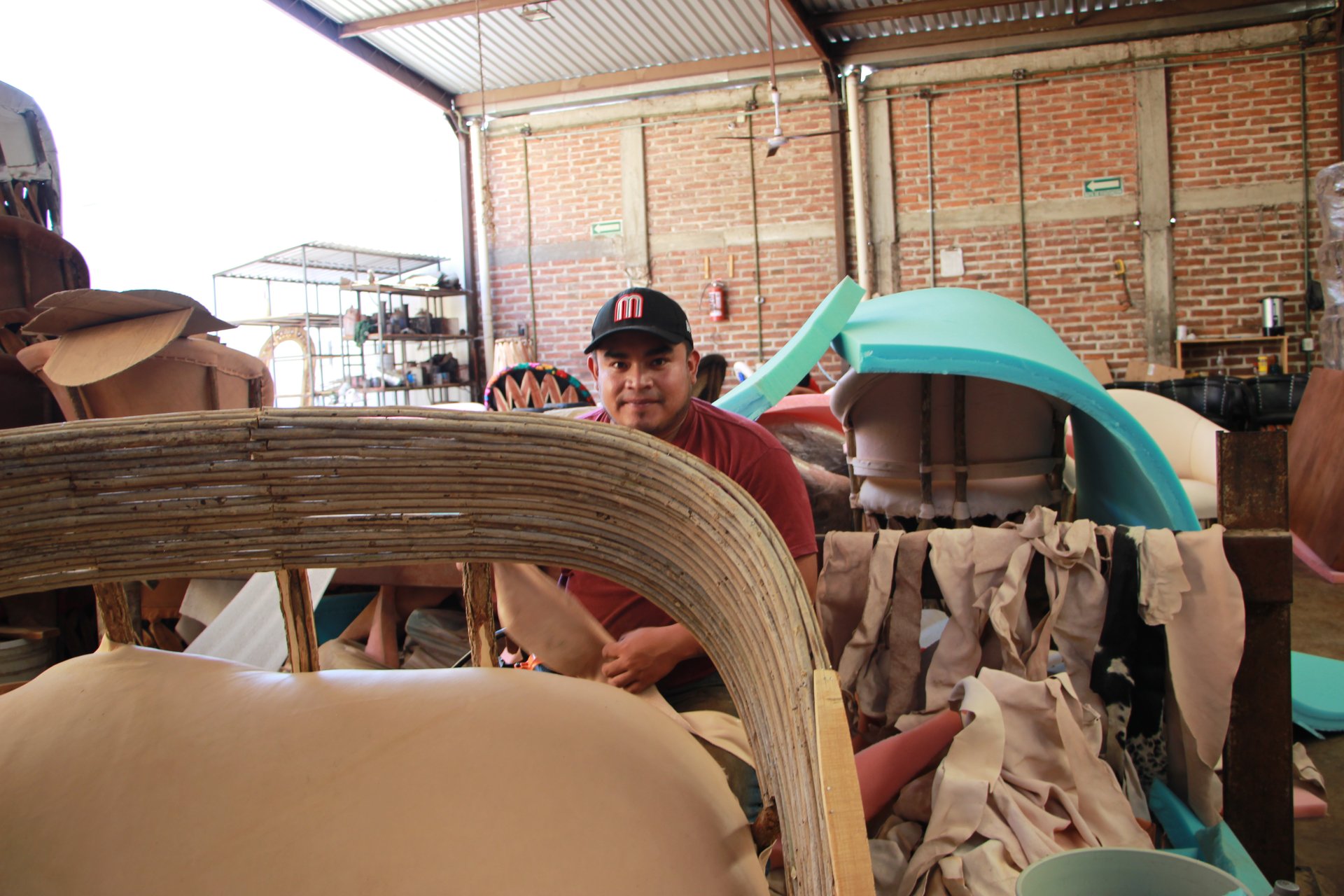Equipales in Zacoalco de Torres: A Long-Standing Tradition
On your next visit to Zacoalco de Torres, Jalisco, discover how an equipal is made — one of Mexico’s most traditional and artisanal types of chairs.

The municipality of Zacoalco de Torres, located just an hour’s drive from Guadalajara, is nationally and internationally renowned for the crafting of equipales — those wide, comfortable leather chairs that have become iconic in this region. These armchairs, known for their distinctive leather scent, are popular in rustic restaurants, traditional cantinas, cabins, boutique hotels, and countryside homes. Surely, you’ve sat in one before — leaning back comfortably into its horseshoe-shaped frame, feeling your back and arms relax into its generous form. A bit of history Did you know that equipales exist throughout Mexico and that in Jalisco they have pre-Hispanic origins? The word equipal comes from the Nahuatl “icpalli,” meaning bench or seat, and “teocpalli,” meaning “seat of the gods.” According to depictions in the Codex Mendoza (1541–1542) and observations by Friar Bernardino de Sahagún, the icpalli were low, flat seats with tall backs, woven from reeds — symbols of power reserved for the noble class. It’s even said that the Aztec emperor Moctezuma had his own equipal. Over time, the icpalli evolved in structure and materials, eventually becoming the equipales we know today. Zacoalco de Torres: famous for its equipales Although the exact date when equipales began to be made in Zacoalco de Torres is unknown, the town has kept this artisanal tradition alive for hundreds of years. According to Reyes Sevilla — a fourth-generation craftsman whose family has long practiced this trade — more than 200 families in Zacoalco de Torres are dedicated to equipal production, mainly in the neighborhoods of San Juan, Las Cebollas, and Los Castillos. Reyes Sevilla, who runs Equipales Imperial, shares that his great-grandfather used to travel by donkey to the foothills to gather wood and reeds for the chairs, which originally were made entirely from reeds and did not use tanned leather. When artisans began covering them with leather, cowhide was used at first, though today pigskin has become more common — cowhide remains in use as well. How is an equipal made in Zacoalco de Torres? According to Reyes Sevilla, each equipal is handcrafted, involving around eight people and taking approximately two hours to complete. At Equipales Imperial, they produce around 200 pieces per week. The process begins with building the frame using guásima wood, palo dulce or palo rosa stakes, and taziste rods. Then, a cushion is added, covered with tanned cowhide or pigskin, painted, and finally packed for shipment. There are different sizes and styles — some feature hand-tooled leather designs, others use hair-on hides, and some incorporate embroidered fabrics from Chiapas, Puebla, or Oaxaca. Depending on the model and materials, prices at Equipales Imperial range from 900 to 10,000 pesos. An equipal can last about 30 years or even longer, depending on care. Reyes Sevilla recommends cleaning them with pumpkin soap or diesel every five years. In addition to individual chairs, they also produce full living and dining room sets, bar counters, rocking chairs, and cantina-style equipales. Reyes Sevilla notes that over 80% of their production is exported to the United States, with additional shipments to countries such as Japan, China, and Germany. In Mexico, their main clients are in Jalisco, Nuevo León, Mexico City, the State of Mexico, and Tijuana. Next time you visit Zacoalco de Torres, don’t forget to take home an equipal and stop by one of the local workshops to learn more about this unique artisanal craft. Equipales Imperial Address: Galeana 282, Zacoalco de Torres, Jalisco Phone: +52 331 267 0824 Hours: Monday to Friday, 10:00 a.m. – 7:00 p.m.; Saturday and Sunday, 10:00 a.m. – 2:00 p.m. More information: equipalesimperial.com

The lively birthplace of mariachi music, you get something brash, lively and oftentimes tugging at your heartstrings, but definitely a magical town you're never going to forget.